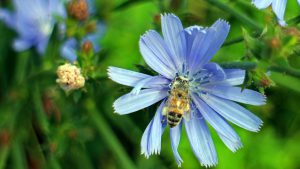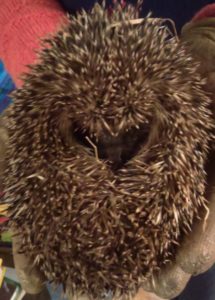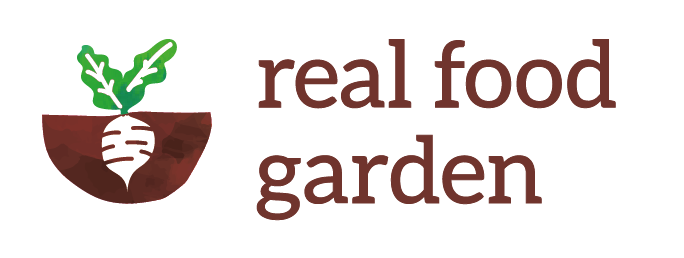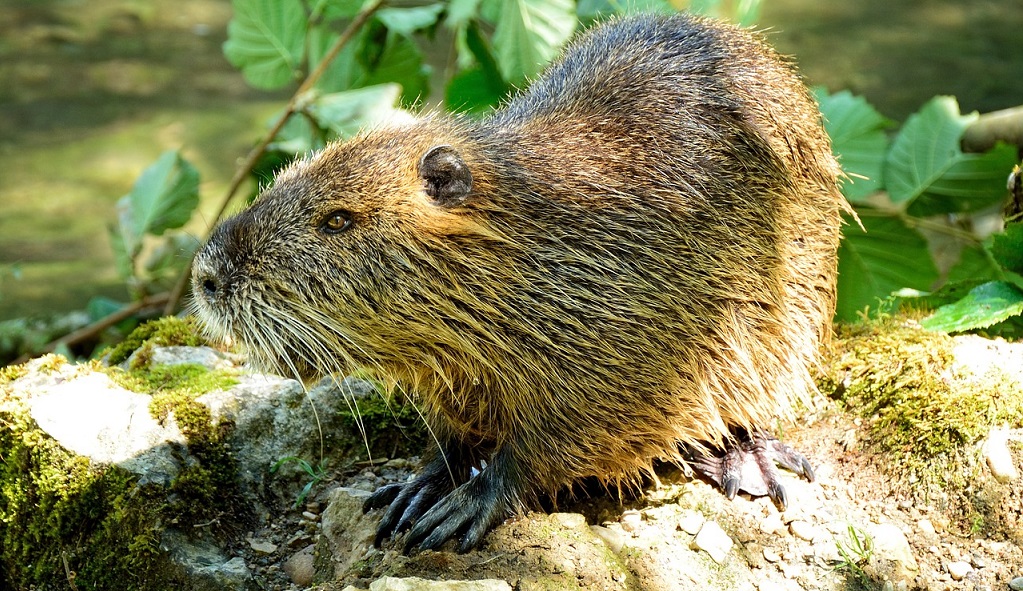Recently we visited a good friend at Woodland Valley Farm near Laddock. Chris Jones farms in an inspiring way. He expects a lot from himself as farmer and guardian of the land and he expects a lot from his farming. I knew several years ago that Chris had turned his grass-dominated fields over to herbal leys. A herbal ley is a purposefully sown mix of plants which are selected for their ability, with the help of grazing animals, to improve soils. They are nitrogen fixers, deep rooted plants, mineral accumulators and herbs to improve the health of the livestock.
These herbal leys combined with a grazing regime called mob grazing allow Chris to keep his cattle outside all year. This means no soya feed bought in from the Americas and cattle free to roam (and deposit their manure) on the land all year. It also soaks up carbon from the atmosphere and helps decrease flooding through higher water retention, oh and I almost forgot that it makes his farm absolutely buzz with insects and team with the life which feed on them.


So you can see why Chris is inspiring other farmers and growers like us. But when we recently visited we were blown away by something else. Chris has worked with several organisations to legally and securely reintroduce beavers to Cornwall. A lovely beaver couple have been introduced to his extensive lake and river valley and are being monitored and researched to help us understand how beavers may help reduce flood risk in the UK.
When we walked towards the lake at dusk the place seemed beautiful but unremarkable in a way. We quietly waited and watched. The midges and flies jumped up and down over the water and bats begun to come out and swoop to catch them. And then we saw it. A surprisingly large but graceful, smooth gingery brown body moving through the water silently. The first beaver in Cornwall for at least a thousand years. It quietly started work knawing through a sizable fallen branch which after about 10 minutes it was happy with and dragged into the water. The sound of the knawing was magical, like a homecoming, a sound I’d never heard but that was so familiar somehow.
Us modern humans are very clumsy and blind when walking through most landscapes, we see, hear and feel very little of what is there and it struck me how these animals so well adapted to their surroundings could be completely missed even when they are close by. They come out at night, make little show and dance about their activity, don’t make a mess of their home and exist peacefully in their place. But it wasn’t the beavers themselves which stayed with me it was what they were doing as landscape engineers.
They were, on a small scale, re-engineering the river valley. By blocking up some streams and creating channels elsewhere the beavers create areas which absorb water during flood events, slowing down the flood waters and making damage less likely downstream. They are also creating habitat for other British species such as kingfishers and water voles who like the banks created where streams are restricted. Or the increased fish numbers supported by the changes.


The visit inspired us on many levels and was the final impetus to trying to become a rehoming site for hedgehogs. At the Real Food Garden we can’t re-engineer a river valley with a lost species but we can create a haven for lots of threatened species whilst producing food for local consumption. For us that’s what it’s all about, finding a way to exist in a landscape that is harmonious with everything else that exists here. Humans have become very poor at this over the last thousand or so years. But we can do it and we have lots we can improve upon.
For us hedgehogs are the start and a very valuable part in rewilding our small patch of Cornwall. They are a species in decline, with numbers dropping by 30% in the last 10 years. They could disappear altogether in the UK at this rate. They are threatened essentially by our inability to live harmoniously. Their habitat is destroyed by development, by agricultural intensification and they are shut out of their territories by our fence and wall building obsessions. We use chemicals to kills pests like slugs because we lack the skill or discipline to control them smartly and hedgehogs and other animals suffer the consequences.
So we commit to making a place where we don’t threaten life and where we can introduce species lost in previous times. The challenge in today’s world is to learn to live like every other animal on this planet: like we love it here, and like we want to stay. So the Real Food Garden is our effort towards that goal and Sort (hedgehog in Kernewek, the Cornish language), our female hedgehog is a step towards that goal and a reminder of our responsibilities and commitment towards a more beautiful world. We hope Sort is happy each night foraging amongst the cabbages and sleeping each day in the woods. This landscape has missed Sort and is rejoicing at her return.

